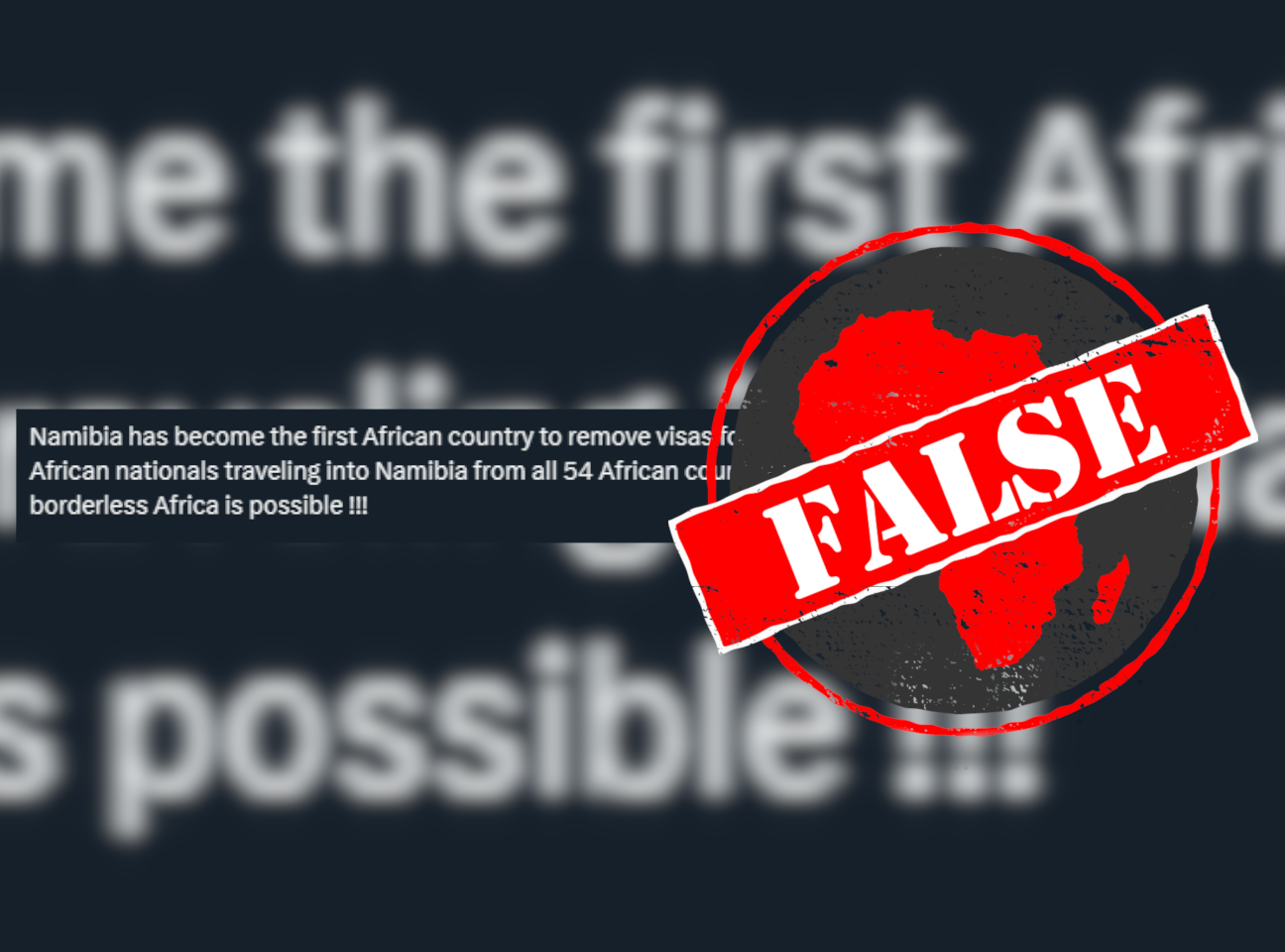IN SHORT: Africans still need a visa to enter Namibia, despite social media posts claiming otherwise.
A number of posts on Twitter and Facebook claim that Namibia has become the first African country to abolish travel visas for all countries on the continent.
“Namibia has become the first African country to remove visas for all African nationals travelling into Namibia from all 54 African countries. A borderless Africa is possible !!!” reads one of the posts, which has been viewed over 890,000 times.
Similar claims have been made on Facebook here, here and here, and on Twitter here, here and here.
In June 2016, the Namibian, the country’s largest daily newspaper, reported that president Hage Geingob planned to do away with visa requirements for all African passport holders as part of the African Union’s Agenda 2063.
Agenda 2063 seeks to transform Africa into an economic powerhouse and achieve inclusive and sustainable social and economic development. One of the strategies it hopes to use is to remove barriers to “the movement of Africans within Africa”.
But seven years after the announcement of the continental plan, has Namibia moved to remove travel barriers? We checked.

No such information
No credible Namibian news outlet has reported the abolition of visas for all countries on the continent. If it were true, it would have made headlines.
We searched the Namibian ministry of home affairs website and found nothing about African countries being exempt from visa requirements.
The ministry subsequently denied the claims in posts on its Twitter and Facebook accounts.
“Clarification of the misleading article circulating on social media platforms under the heading ‘Namibia drops visa for all Africans’,” the posts read.
The ministry further told Africa Check the news was not true, dismissing it as fake. “There has been no decision by the government to drop visa requirements for African countries."
Republish our content for free
For publishers: what to do if your post is rated false
A fact-checker has rated your Facebook or Instagram post as “false”, “altered”, “partly false” or “missing context”. This could have serious consequences. What do you do?
Click on our guide for the steps you should follow.
Publishers guideAfrica Check teams up with Facebook
Africa Check is a partner in Meta's third-party fact-checking programme to help stop the spread of false information on social media.
The content we rate as “false” will be downgraded on Facebook and Instagram. This means fewer people will see it.
You can also help identify false information on Facebook. This guide explains how.


Add new comment